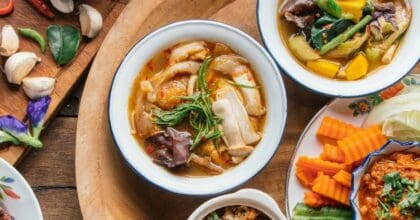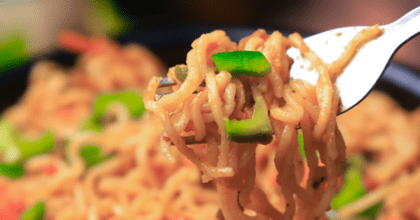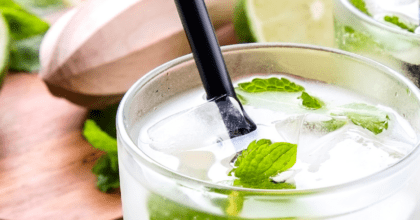UK sales of wet and dry baby food drop by 14% in 3 years as parents choose to make their own
As Princess Charlotte celebrates her first birthday on Monday (2nd May), it seems that she is not the only British baby enjoying food fit for a princess. New research from Mintel reveals sales of wet and dry baby food dropped by 14% between 2012 and 2015 as currently many of the nation’s parents choose to blend up a treat for their tiny tots.
Today, over four in five (83%) parents with children aged four and under say they feed their child homemade food (excluding snacks) such as purées made from scratch, with as many as 12% saying they do this four times a day or more. And while peeling, chopping and puréeing is clearly no mean feat, with less than two in five (35%) parents saying that homemade baby food is easy to prepare, it seems many are in agreement over the benefits of homemade food. Indeed, over half (56%) of parents with children aged 0-4 believe homemade food is trustworthy.
Mintel research shows that managing children’s diet is crucial as 45% of parents cite control of ingredients as a reason for making baby food at home. And it seems Britain’s parents appreciate the cost-saving element of homemade food as more than a third (34%) see baby/toddler pouches as an expensive option. What’s more, for one in seven (15%) parents, homemade food is seen to as ‘premium’, compared to 6% who say this of manufactured baby food products in jars.
However, as Britain’s babies enjoy a diet of homemade food it seems there may be tears at bedtime for manufacturers. Sales of wet and dry baby food dropped by 14% from 37 million kg in 2012 to an estimated 32 million kg in 2015, whilst sales of baby drinks dropped 67% from 6 million kg to an estimated 2 million kg in the same time period. Although it’s not all bad news, sales of baby finger food rose 33% to an estimated 4 million kg between 2012 and 2015, whilst baby milk rose by 9% to an estimated 58 million kg in the same timeframe.
Overall volume sales of baby food, drink and milk are estimated to have fallen by 3% since 2012 from 99 million kg to 96 million kg in 2015. During 2016 the market is forecast to decline further, falling to 95 million kg.
45% of parents cite control of ingredients as a reason for making baby food at home
Amy Price, Senior Food and Drink Analyst at Mintel said:
“While for many busy parents preparing the family meal may feel like a chore, our research shows that the majority of parents are happy to cook for their tots. An on-going focus on sugar as a health foe means that, for many parents, control of baby’s diet is crucial, which helps to explain why so many parents are choosing to feed their babies and toddlers homemade fayre. As a result, the popularity of homemade food poses a threat to the baby food and drink market. That homemade food is seen to be more premium than manufactured indicates that manufacturers need to step up and premium sub-brands could be one way to explore this.”
While the nation’s parents appreciate the benefits of homemade fare, it is clear that manufactured baby food, drink and milk still has a role to play for busy mums and dads as it is used by 72% of parents. Manufactured baby food continues to provide a convenient option to parents as more than two in five (42%) see manufactured baby food in jars as convenient, in contrast to 18% for homemade food. What is more, over one in five (22%) parents say they buy manufactured baby/toddler food as a back-up. For example, when they don’t have time to cook. And a lack of cooking skills mean 12% of parents buy manufactured baby/toddler food that they would not be confident in making themselves.
When it comes to which products they choose to buy, trust is the leading factor in purchase decision. Over one third (36%) of parents with children aged 0-4 say that the last time they bought manufactured baby or toddler food they chose a brand they trusted, followed by a product with no added sugar (32%) and a product which contained 1 of 5-a-day portions of fruit or vegetables (30%). When buying baby and toddler milk, brand is also an important factor as 34% of parents with children aged four and under say that the last time they bought baby milk the brand of the product was important.
However, it seems that parents are not afraid to step away from food products specifically targeted towards their little ones: one in five (21%) parents with children aged 4 and under say that they buy child-friendly versions of regular food, such as low-salt baked-beans and full-fat yogurt, instead of manufactured baby or toddler food.
“With pouches, jars, trays and finger food already seen as convenient by more than a third of parents with young children, brands should do more to leverage the emotional benefit this can deliver to parents. Brands rarely focus marketing on giving permission to parents to take such shortcuts in their daily routine, enabling parents to focus on the things they enjoy doing, and those that really matter to them and their family, which include spending quality time together.”
Finally, it seems parents are keen for their tots to share a family meal, as half (49%) say they like their child to eat the same food as the rest of the family. Giving baby sufficient new tastes and textures remains a concern for 15% of parents who worry that they are not offering their child enough different flavours in their meals. And it seems many parents are striving towards a diverse repertoire, as four in five (79%) parents with children aged 4 and under say that it is important to expose their child to a variety of foods so they do not develop allergies.
Press review copies of the Baby Food and Drink UK 2016 report and interviews with Senior Food and Drink Analyst Amy Price are available on request from the press office.
For the latest in consumer and industry news, top trends and market perspectives, stay tuned to Mintel News featuring commentary from Mintel’s team of global category analysts.
-
Mintel StoreGet smart fast with our exclusive market research reports, delivering the latest data, innovation, trends and strategic recommendations....View reports
-
Mintel LeapMintel Leap is a revolutionary new AI-powered platform that will transform your research process....Book a demo







































